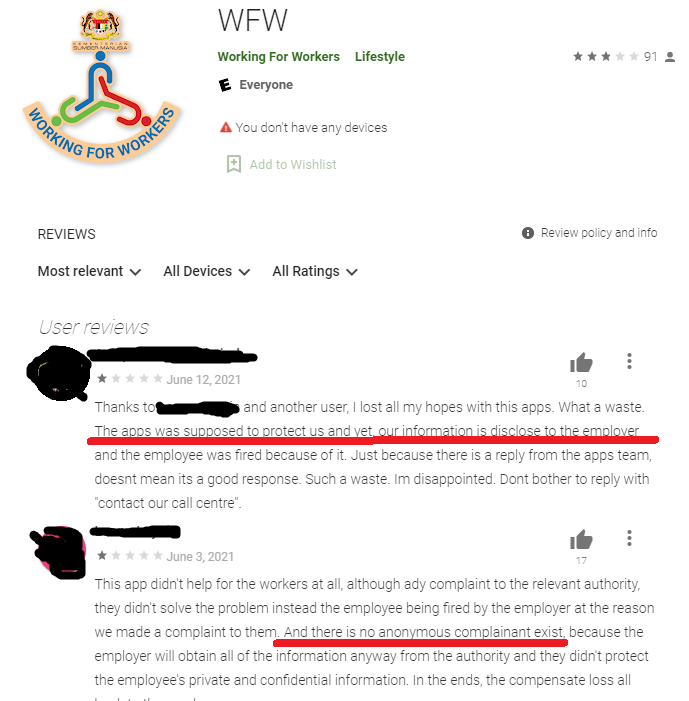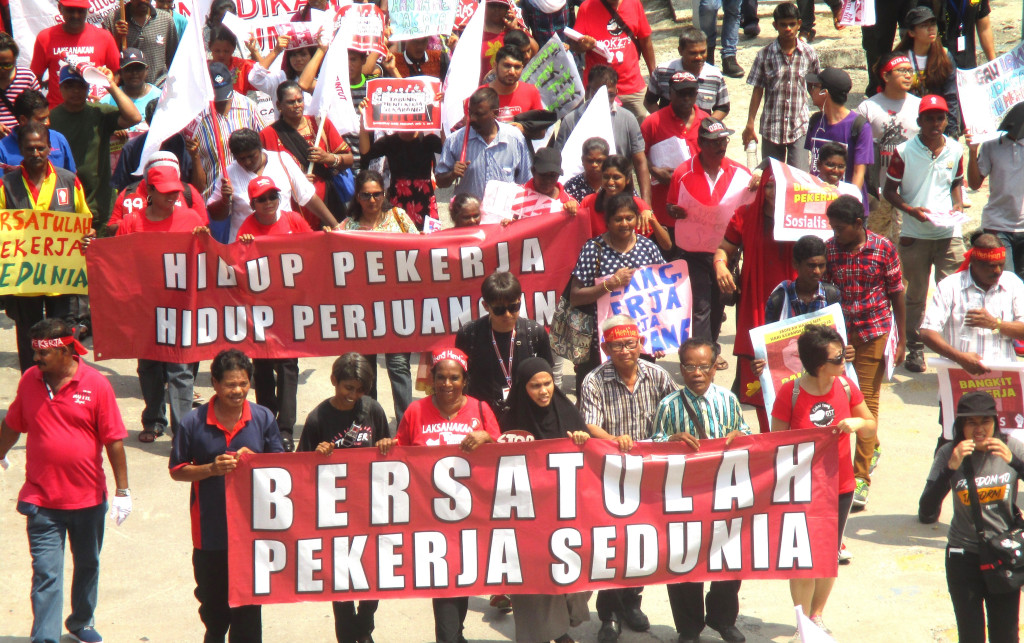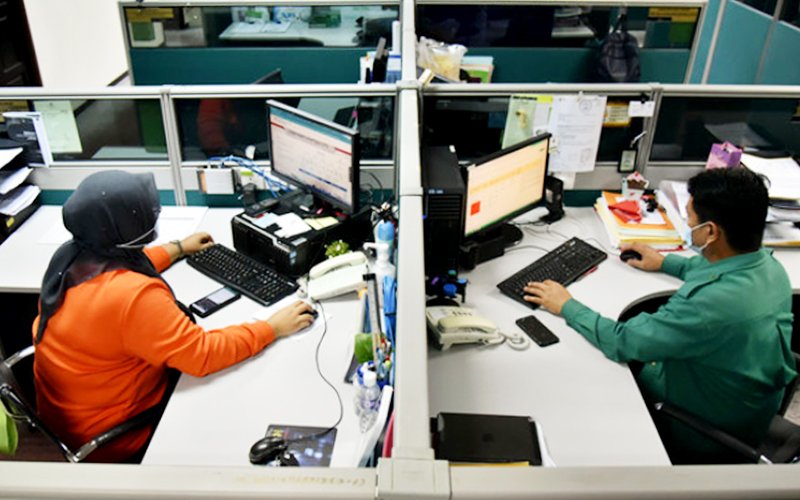
I still remember the day when I decided to quit my previous job.
This happened a few years back, at a time when I was much younger and more naive about the way things worked in real life.
The day started off normal, just like any other, when I got a call from my boss to attend a meeting with two newer employees to “discuss our responsibilities”.
Probably won’t be very important, I thought. Just a way to get the newbies up to speed.
Instead, right after we’d all sat down, my boss said that she’d be firing both the new employees because their department wasn’t as profitable as she’d liked it to be. No warning, no second chance; just pack your bags and get out.
“Oh, and please send me your resignation letter soon,” she said as she shooed the shocked ex-employees out the door. A minute later, she turned around and dumped all their work on me instead.
That whole event was a big shock. When I first started, I was just grateful for the chance to have a job. But as I paid more attention, I became more and more aware that this wasn’t a healthy workplace. The constant requests for overtime, the low pay, the lack of flexible hours… it all began to add up.
I stuck with that company for a few more months, but in the end I was fortunate enough to find a new job — one that paid better to boot! But not all Malaysians have the opportunity to escape their abusive employers.
In fact, many Malaysian employees don’t even realise that they’re being taken advantage of!
Why Do I Have To Go Back To The Office?

Over the past year, many Malaysians have learned just how important it is to preserve our worker’s rights.
Thanks to the COVID-19 pandemic, hundreds of thousands of employees all over the country have been given the chance to work from home for the first time — and many of them are not so eager to go back to the old ways again.
Despite the rising case numbers, some bosses have stubbornly insisted on forcing their employees to continue travelling to the office every day regardless of the infection risks that they’d be facing. The situation has gotten so bad that the government has even set up a new app specifically to target this issue!
Released on 3 May 2021, the Working for Workers (WFW) app provides a way for abused employees to lodge a formal complaint against bosses that try to force them to come into the office unnecessarily.
According to Human Resources Minister Datuk Seri M. Saravanan, this free app is meant to address the increasing labour malpractices caused by unscrupulous employers.
“Workers fear losing their job and sometimes, are threatened not to do so, and this has forced them to suffer in silence when the country has all the labour laws in line with the International Labour Organisation and other international requirements,” he said.
“This app will enable such workers to be protected without compromising their safety.”
But Is This Enough?

Unfortunately, a month after its launch, the WFW app hasn’t achieved the effect that it was hoping for.
A quick glance at its review section reveals plenty of complaints about how hard it is to register and use. To make matters worse, some reviewers even claimed that they had actually been fired because their bosses found out that they were filing a complaint!
Some would argue that this is perfectly fine and that employers should have a right to fire their workers for filing a complaint. But personally, I’d say that anyone making this argument is either a sucker or someone who wants to take advantage of suckers.
The truth is, we workers have a lot more rights than most people seem to know.
Looking At the Legal Side Of Things

Legally speaking, employer-employee relationships in Malaysia come under the Labour Relations Act (IRA) 1967 and the Employment Act 1955.
While these laws may be old, they are actually pretty comprehensive and a lot more pro-employee then you might expect. In fact, some foreign businesses have actually complained about how the system is designed to be disadvantageous towards employers!
The main reason for this is because Malaysia doesn’t have an “at-will employment” system. In other words, employers aren’t supposed to just hire or fire people “at-will”.
The process of terminating a job is supposed to be justified. Despite what TV shows and movies may have shown you, in most cases your boss cannot just simply say “You’re fired!” and throw you out of the office.
They need to provide a just cause and excuse for firing someone; things like poor performance, theft, lack of punctuality, sexual harassment, etc. Under Malaysian labour law, any termination letter MUST mention the reason for termination.
In other words, depending on their employment contract, the two people who got fired by my ex-boss may have been well within their rights to seek legal settlement for unfair dismissal.
What Happens If I Get Fired Unfairly?

Under Sec 20(3) of the IRA, any employee who has been dismissed without just cause can file a complaint with the Director-General of Industrial Relations (IR) within 60 days of termination. The Industrial Relations Department would then arrange a conciliation meeting between the employer and employee to resolve the matter.
Another type of unfair dismissal is when the abusive boss doesn’t fire anyone directly. Instead, they’ll simply do their best to make the work environment as miserable as possible to try to get people to quit on their own.
For example, if you’re being harassed by a co-worker and your boss refuses to do anything about it even after you’ve asked for help, you may feel as if you have no other choice but to resign.
In these kinds of situations, it is possible to file a constructive dismissal claim, which is basically calling out your boss for breaching the employment contract.
Just as with unjust terminations, you’ll need to file your claim within 60 days. However, you’ll have to bring the proper records and documentation to prove that you were unfairly dismissed or “forced” to resign.
Note that you can ONLY file a claim if your boss is breaching part of the employment contract. Resigning for reasons like “I don’t like my job” or “I don’t get along with my co-workers” won’t count.
Understanding Your Rights

While fair termination is important, it is far from the only right that every Malaysian employee is entitled to. Some of the other important rights that you should be aware of include:
1) Payment of Wages
As of February 2020, Malaysia’s minimum wage is officially RM1,200 a month. All employees should receive their monthly salary no later than the seventh day of your “pay day”. Aside from that, employers are also required to make contributions to your EPF and SOCSO accounts.
Note that employers do NOT need to pay the wages of anyone who is absent due to imprisonment or attendance in court (unless it is as a witness on their behalf).
2) Overtime
Generally speaking, an employee is not required to work for more than eight hours a day. However, if required to take overtime, you are entitled extra pay as follows:
-
Overtime hours: no less than 1.5 times their normal hourly salary
-
If required to work on their rest day: twice their normal hourly rate
-
Working on public holidays: triple their normal hourly rate
Instead of overtime rates, some companies may offer leave replacement days instead, allowing you to take an extra day off for working during a normal leave day.
3) Annual Leave
Malaysian employees are entitled to paid annual leave, though the exact number of days will change based on how long you’ve been employed:
-
8 days per year for those who have worked 1 to 2 years
-
12 days per year for those who have worked 2 to 5 years
-
16 days per year for those who have worked longer than 5 years
If you have worked for less than a year, your paid annual leave must be directly proportionate to the number of completed months of service.
Sick leave and maternity leave is not counted as annual leave but are in a separate category altogether.
4) Public Holidays
All employees are eligible for a paid holiday on 11 of the gazetted holidays (National Day, The birthday of the Yang di-Pertuan Agong, Labour Day, etc.). In addition, the government can appoint extra public holidays for a particular year under the Holiday Act 1951.
If the employers are unable to grant leave during a public holiday, they must provide paid leave on another day as a substitute.
5) Maternity Leave
According to the Employment Act 1955, female employees in the private sector are entitled to a total of 60 days of maternity leave while those in the public sector are entitled to 90 days.
Depending on how long they’ve worked, they are also entitled to a maternity allowance, which is basically their normal monthly salary. In most cases, it is considered an offense to fire a female employee during her maternity leave.
Sadly, Many of Us Aren’t Actually Protected

So after seeing all these rights and protections being listed down, you’re probably feeling pretty good, right?
Unfortunately, there’s a good chance that you aren’t actually being protected.
The Employment Act 1955 sets out the minimum benefits that employees should receive. However, it ONLY covers employees who:
-
have a monthly salary that does not exceed RM2,000
-
are engaged in manual labour, regardless of salary
-
are engaged in the operation or maintenance of mechanically propelled vehicle
-
supervise or oversees other employees engaged in manual labour
-
are engaged in any capacity on a vessel like ships, planes, etc. (subject to certain other conditions)
If you don’t fall into any of these categories, you’re considered a “Non-EA Employee”, which means that everything is instead determined by your employment contract.
Fortunately, most employers will still use the Employment Act as a minimum standard, even for their Non-EA Employees.
I would like to reiterate, most.
Why Our Rights Are So Important

In this post-COVID economy, it has become more important than ever before for the average Malaysian to understand our legal rights as a worker.
For decades, immoral employers have taken advantage of their workers and gotten away with abusive practices such as late payment of salaries, unpaid overtime and termination without notice.
Since the start of this pandemic, many of these employers have shown beyond a doubt that they’re more concerned about counting pennies than protecting their employees. As such, we workers need to recognise that we cannot rely on our bosses to cover our backs.
In this modern era, we must be able to prioritise our well being and establish a healthy work-life balance away from such abusive workplaces. After all, if you don’t take care of yourself, who will?








